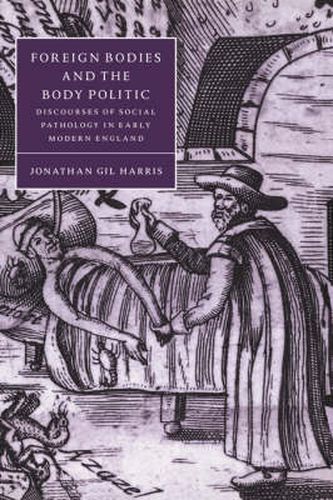Readings Newsletter
Become a Readings Member to make your shopping experience even easier.
Sign in or sign up for free!
You’re not far away from qualifying for FREE standard shipping within Australia
You’ve qualified for FREE standard shipping within Australia
The cart is loading…






Jonathan Gil Harris examines the origins of modern discourses of social pathology in Elizabethan and Jacobean medical and political writing. Plays, pamphlets and political treatises of this period display an increasingly xenophobic tendency to attribute England’s ills to ‘foreign bodies’ such as Jews, Catholics, and witches, as well as treat their allegedly ‘poisonous’ features for the health of the body politic. Harris argues that this tendency resonates with two of the distinctive paradigms of Paracelsus’ pharmacy which also includes the notion that poison has a medicinal power. The emergence of these paradigms in early modern English political thought signals a decisive shift from Galenic humoral tradition towards twentieth-century politico-medical discourses of ‘infection’ and ‘containment’, which, like their early modern predecessors, make mysterious the domestic origins of social conflict and the operations of political authority.
$9.00 standard shipping within Australia
FREE standard shipping within Australia for orders over $100.00
Express & International shipping calculated at checkout
Jonathan Gil Harris examines the origins of modern discourses of social pathology in Elizabethan and Jacobean medical and political writing. Plays, pamphlets and political treatises of this period display an increasingly xenophobic tendency to attribute England’s ills to ‘foreign bodies’ such as Jews, Catholics, and witches, as well as treat their allegedly ‘poisonous’ features for the health of the body politic. Harris argues that this tendency resonates with two of the distinctive paradigms of Paracelsus’ pharmacy which also includes the notion that poison has a medicinal power. The emergence of these paradigms in early modern English political thought signals a decisive shift from Galenic humoral tradition towards twentieth-century politico-medical discourses of ‘infection’ and ‘containment’, which, like their early modern predecessors, make mysterious the domestic origins of social conflict and the operations of political authority.